She Rarely Saw Doctors Growing Up. Now She’s Becoming One
Student Spotlight
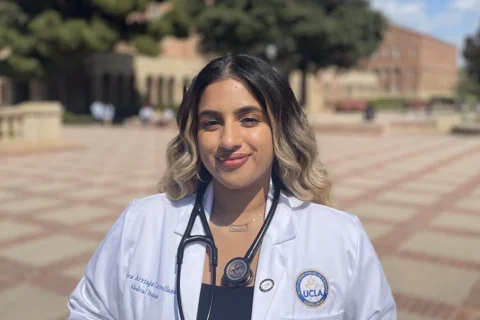
Meet Kendra Arriaga-Castellanos
Born and raised in South Central Los Angeles, Kendra Arriaga-Castellanos remembers a childhood disconnected from healthcare.
“My parents didn't really have healthcare,” says Kendra, whose parents made a life in Los Angeles after immigrating from Honduras. “We didn't really see doctors, and that was normal.”
The few doctors they saw didn’t speak their language or understand their culture and values. She never saw reflections of herself or her family in medicine.
“You would leave feeling like they didn’t understand your problem. We never felt involved in our care.”
During her undergraduate years at UCLA, Kendra realized she could help solve the problem facing her family and her community. She could become a doctor.
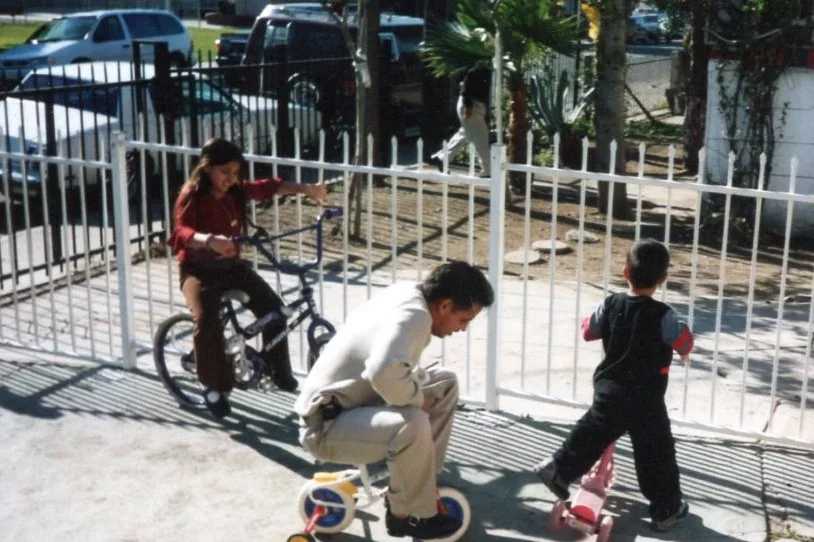
“It wasn't until I volunteered at Ronald Reagan UCLA Medical Center that I saw what great healthcare looks like,” she recalls. “I saw interactions between patients who had great health insurance and doctors who spoke their language and understood their upbringing. I understood then. This is what healthcare is.”
The experience ignited her passion to pursue social justice through medicine. She wouldn’t just become a doctor—she would become a doctor and community advocate who brings the quality care she observed at UCLA hospitals to marginalized groups who’d never received it.
- Specialty: Emergency Medicine
- Matched Residency Program: Harbor-UCLA Medical Center
- Fun Fact: Kendra has gone skydiving.
Getting into Med School as a First-Gen Student
Like many first-generation students, Kendra didn’t have a roadmap for getting through college, pursuing medical school, or navigating the higher education system in general.
“I didn't know what higher education really entailed until I was in it,” she says.
In undergrad, she struggled to connect with an unfamiliar culture and to find a solid support system. She eventually found empowerment through UCLA’s Academic Advancement Program, which supports first-generation, low-income, and/or historically underrepresented students.
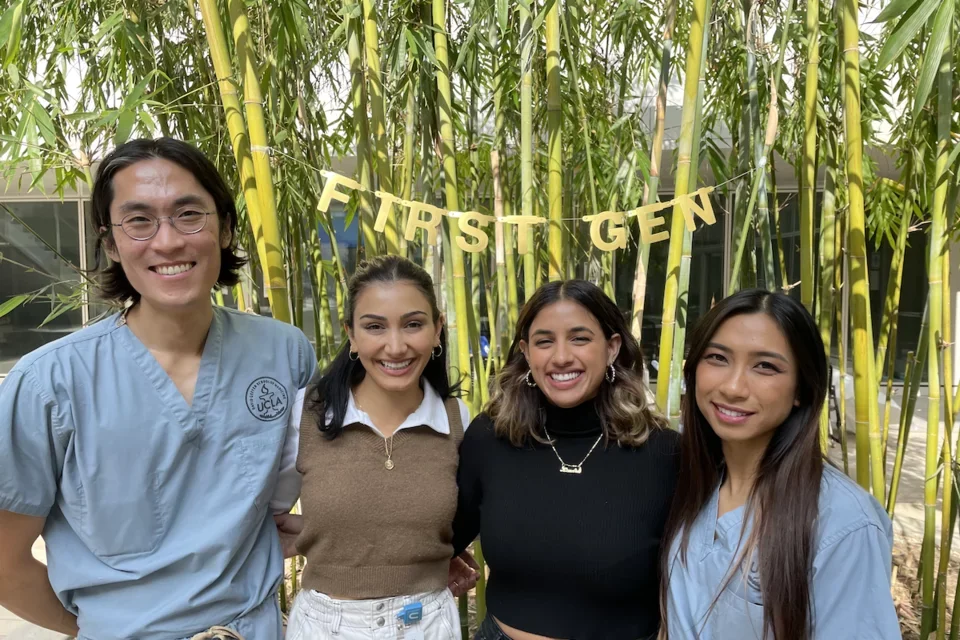
After graduating from UCLA, she found her path to medical school through Charles R. Drew University’s Postbaccalaureate Leadership Program (CDU PLP).
“I realized medicine wasn’t just about my knowledge. It was about my passion for serving my community,” she says. “It changed my perspective. I went from thinking ‘Can I be in medicine?’ to thinking ‘I should be in medicine.’ Medicine needs my unique social and cultural lens.”
At Charles R. Drew University (CDU), she found the educational community she’d been yearning for, a community as tight-knit and supportive as a family. The postbaccalaureate program demystified the process of getting into medical school. It also helped Kendra decide exactly what medical school she wanted to get into.
She knew the Charles R. Drew/UCLA Medical Education Program would help her become the physician she wanted to be.
Now months away from completing her dream program, Kendra couldn’t be happier about the path she chose.
“They’ve given me a foundation for being a physician,” she says. “I have been with people who look like me and who have gone through similar life experiences. At CDU, I’m consistently inspired by those I’m surrounded with and who choose to guide me.”
Stepping into a Physician’s Shoes
Having a supportive community helped Kendra feel a sense of belonging during her years at med school. She’s connected with other Latinos pursuing medical careers through the Latino Medical Student Association (LMSA). Through first-gen organizations and groups, she’s found a way to support and empower other students among the first in their families to pursue a medical education.
Looking back, Kendra says medical school pushed her beyond her comfort zone on a daily basis. While it felt stressful and challenging at times, it ultimately proved she could exceed the limits she’d once held for herself.
“As medical students, we’re asked to do things we might not feel fully prepared to do, but somehow we always do it,” she says. “We always end up on the other side having achieved it—whatever was asked of us. That really speaks to the resilience and grit of those who choose to pursue this profession.”
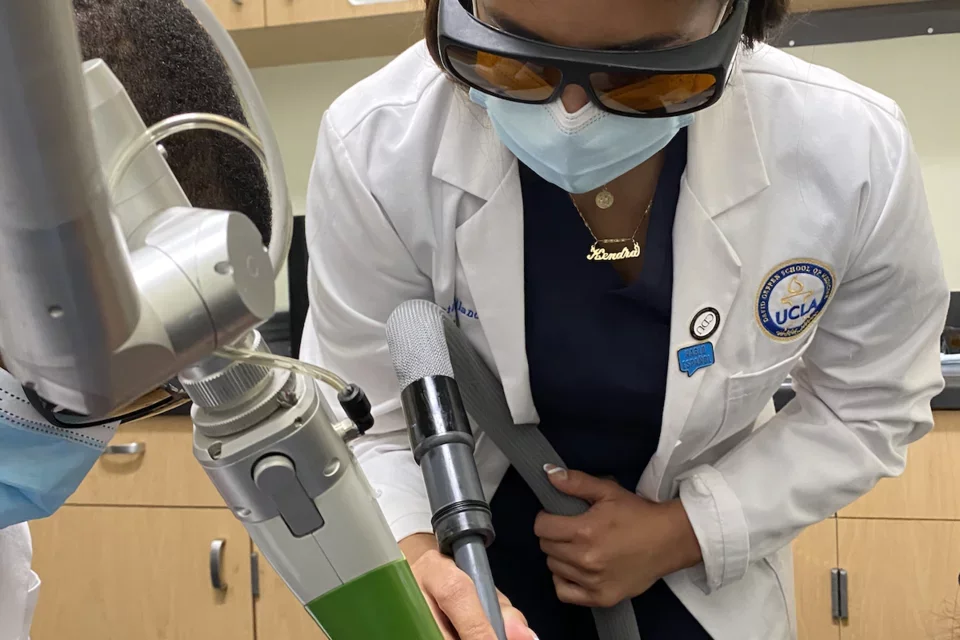
During surgery rotations, a memorable patient interaction reminded Kendra of the greater purpose driving all her hard work: helping patients.
The patient spoke Spanish and had been hospitalized previously for an issue that kept coming back. No one had been able to explain the issue or what she needed to do in her language and in a way she could understand.
“I spent most of my shift with her one day, reviewing her chart, explaining what had happened during that previous hospitalization, and walking her through all the steps she needed to take moving forward.”
The patient felt relieved to finally understand her issue and grateful to Kendra for taking the time to clarify everything.
“She and her son gave me their blessing—they prayed for me to finish my training. They said I was going to make a great doctor.”
Kendra knew how it felt to be in her patient’s shoes. Finding herself in the physician’s shoes, knowing she truly changed someone’s life, felt more moving and fulfilling than she could have imagined.
Matching Into Residency: Emergency Medicine
Kendra approached her clinical rotations with an open heart and mind.
“When I stepped into the emergency department, it was a thrill,” she says. “I love being there. It’s truly a window to the community.”
In the emergency room, Kendra saw her most direct entry to becoming both a well-versed clinician and a community advocate. She knew she’d found her medical specialty.
Since then, she’s studied barriers and facilitators to developing emergency medicine residency programs in Latin America and the Caribbean.
“This work is incredibly special to me because we’re using this research to help develop the very first emergency medicine residency program in the area my parents come from.”
Championing her specialty around the world is a goal close to Kendra’s heart, one she’ll advance by practicing emergency medicine in Cape Town, South Africa.
“The people who help push the specialty forward travel to different countries and return home with insight and knowledge to improve care in their local community.”
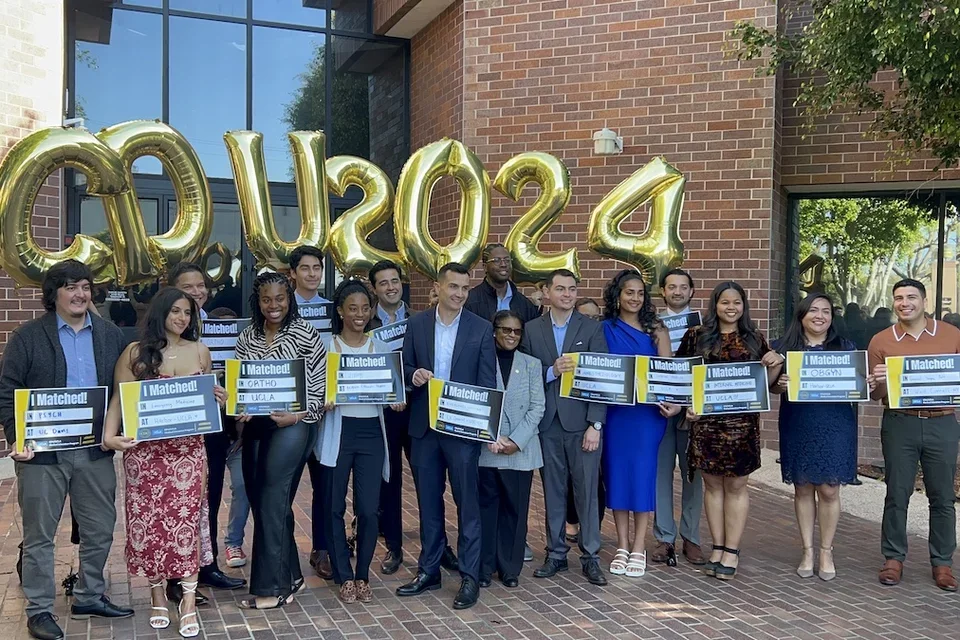
Kendra had her local community top of mind when considering what emergency medicine residency programs to apply to. Knowing she wanted to stay in Los Angeles helped her narrow down her choices. After completing applications and interviews, she finished and ranked her final list of programs, knowing each would allow her to serve underrepresented and/or underserved communities.
Waiting for Match Day, the day med students across the United States learn where they’ll complete their residency training, Kendra felt the nerves. She knew she would be fulfilled no matter where she matched, but she couldn’t wait to find out her results and learn where she would spend her next few years.
Her wait ended with the best-possible news. She matched into emergency medicine at Harbor-UCLA Medical Center, her top choice.
“Harbor UCLA serves South Los Angeles, where I was born and raised,” Kendra says. “That is very meaningful and special to me.”
Matching at Harbor-UCLA Medical Center feels to Kendra like bringing her story full-circle.
“To have lived through health inequities in those communities and come back as a physician who can empower and serve those communities is incredibly special.”
Dr. Kendra Arriaga-Castellanos
As Kendra prepares to graduate medical school, she looks back on how far she’s come since childhood and feels a rush of gratitude for her parents, who supported her unconditionally throughout her education.
“I know it has been difficult for them to fully understand my journey through a space they’ve never been in—higher education, medicine, and healthcare,” she says. “But they’ve given me all I’ve ever needed.”
She knows what becoming Dr. Kendra Arriaga-Castellanos means to them.
“For my parents, me becoming a doctor is the realization of the American dream,” she says.
“They came from Honduras to find a better life and made so many sacrifices, but this proves it was all worthwhile. Because of them, my generation and future generations will not just survive. We’ll pursue our dreams.”
Considering how hard she’s worked for her dream, Kendra thinks about future doctors who might be where she was several years ago, holding a future vision close to their hearts, feeling uncertain they have what it takes to make it come true.
“Continue on your path unapologetically,” she tells first-gen and Latino students. “You deserve to be here. You are capable. Medicine needs you, and I can't wait to work with you someday.”
Being on the other side of the journey, after getting into and through medical school, Kendra can clearly see what she couldn’t at first.
“I thought maybe I wasn’t good enough or that there wasn’t space for me in medicine,” she says. “But now I know my perspectives and experiences as a first-generation Latina physician don’t just belong in this space. They’re absolutely needed in this space.”



